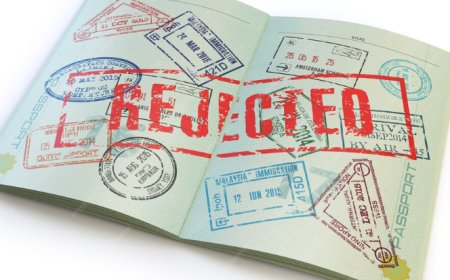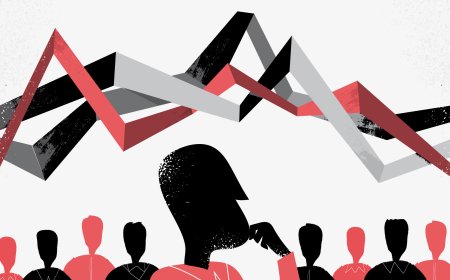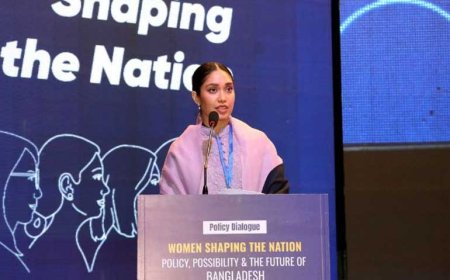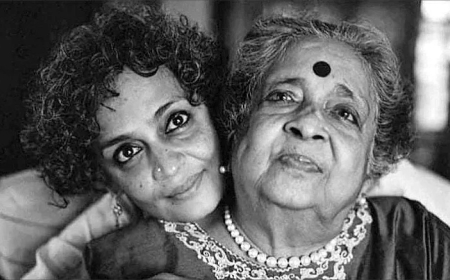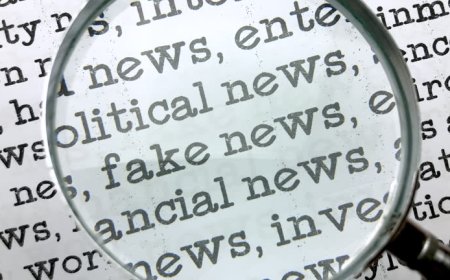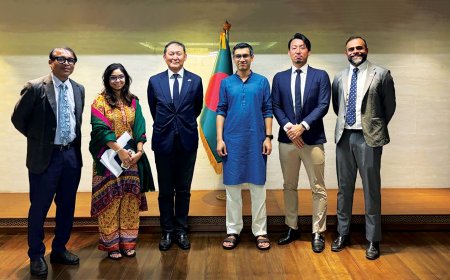Election Code of Conduct 2025: Why Shouldn’t Political Parties Share the Responsibility?
We can have free and fair elections if the political will is there. If the political parties commit to it, then it can happen.

In Bangladesh’s politics, elections have become a strange game -- there’s a field, a ball, and players, but no culture of respecting the rules. The 2025 Code of Conduct is not just a set of laws; it is the exam paper for democracy’s future. While the draft includes several new provisions, much more needs to be added to reflect our realities. From the citizen’s platform, we have already submitted our opinions to the Election Commission. And with the time we still have, implementing these is entirely possible.
Elections today are fought not only in physical spaces but also on screens. As the UK’s Digital Imprint Law mandates, anyone placing an online political ad must disclose their identity. We too must include Facebook boosts, sponsored posts, and influencer marketing expenses in the official election expenditure. Otherwise, foreign funding, covert campaigns, and waves of misinformation will overpower voters’ willpower.
Foreign broadcasters operate in our country, and many have been shown to spread disinformation. During elections, we must stay alert to the disinformation they promote. AI-generated videos should be clearly marked. If countries like the US have had to face allegations of foreign interference, it is naive to believe we are immune.
This is why the Election Commission needs to establish an Election Cybersecurity Unit -- modelled after the US -- alongside a dedicated Fact-Checking and Monitoring Cell. Major social media companies should sign MOUs with us to ensure timely blocking and reporting of harmful content. In the EU, using personal data for political campaigns is illegal -- we urgently need such specific provisions in Bangladesh as well.
We hear the phrase “level playing field” before every election, but in reality, state machinery, police, and government resources often become tools for one side. In India, the Election Commission openly reprimands and punishes ministers from the ruling party for violations. Our laws should be robust enough to hold party leaders directly accountable. If a party collectively runs smear campaigns, their electoral symbol should be subject to cancellation. Pre-election Monitoring Cells must be established, and security forces should have their own election-time code of conduct. Influencers, too, must adhere to the code.
Kenya’s elections feature a monitoring app that allows anyone to file complaints, tracked in real-time. We should introduce a similar e-Tracker where citizens, journalists, and observers can directly submit complaints. The Election Commission’s website should be updated daily, listing violators, the number of breaches, and the actions taken.
Violence has become a regular feature of our elections. Kenya again provides a model -- its violence early warning and response system should be adopted here to enable preventative action. Communal incitement should lead to automatic disqualification, and harassment -- online or offline -- of women candidates must be classified as an electoral offence. Journalists and observers also need explicit protection.
Our spending limits are disconnected from reality. In truth, major parties spend crores. Indonesia’s real-time online expense tracker should be adopted so that every candidate’s expenditure is made public. An Audit Cell must review expenses, and fines should be proportional to the spending -- so they genuinely impact larger parties. The current penalties of Tk 50,000 or Tk 100,000 are insignificant to them. In the 2018 election, over 700 violations were reported, but only 12% were resolved before voting day. The law should require rulings to be delivered within seven days.
Although banning posters seems beneficial in theory, they remain an essential tool for voter outreach in rural areas. Limited quantities of biodegradable posters, with equal quotas for all candidates, should be permitted in designated zones. Candidates must clear them away afterwards -- or face fines or imprisonment.
Each constituency should have a fixed number of rallies held on weekends, ensuring equal access for all parties -- reducing unnecessary conflicts. Similar to Canada, constituency-level debates should be mandatory, held at the Election Commission auditorium, broadcast live, and attended by independent media and civil society. Candidates would respond to citizen questions and publicly present their affidavits.
If one candidate receives state protocol, it must apply equally to all. The code should include a clear list of VIP privileges to prevent bias and ensure transparency. Appeal hearings at the election tribunal should be broadcast live. The code must also address deliberate obstruction of other parties’ campaigns.
Some employees of government, semi-government, and autonomous bodies behave like party workers to secure future benefits. Despite existing laws, no one is held accountable. During elections, any violation of civil service conduct should be tried swiftly by a tribunal under the EC.
After many years, elections are finally approaching. We have forgotten the joy of lively campaigns. At least 28 days should be allocated for campaigning, and the pre-election quiet period should be extended from 24 to 48 hours. Like in India, a live constituency-based result portal should be introduced.
The EC must be equipped with the technology, manpower, and skills to monitor digital platforms, resolve complaints, and enforce laws. Officials should be trained in digital forensics, data analysis, and cybersecurity. Election rules should be reviewed regularly to adapt to emerging challenges, with a flexible framework prepared for future threats.
Can laws alone ensure good conduct? In Bangladesh, too many laws are like the proverbial “judge’s cow” -- they exist only on paper. We must change the political culture. That requires the government, political parties, and civil society to work together. Each party should have its own Ethics and Compliance Cell, and a Political Ethics Charter should be initiated by civil society to uphold ethical standards year-round, not just during elections.
We have discussed reform extensively, but in reality, three key areas still remain untouched: the civil administration, the police, and the political parties themselves. Many young political workers -- those now in their twenties -- have learned nothing constructive under the previous government. Expecting three law enforcement officers at each centre to ensure fairness is not only challenging but also unrealistic. Reforming political parties is urgent. Ahead of February’s elections, we must also establish democratic processes within the parties. Many have not held councils for years. Fully democratic councils -- not selections -- are urgently needed. Internal democracy can help root out corrupt elements from parties. Professional bodies -- student, teacher, and occupational groups -- must also define their role: will they continue as party appendages or will they help guide their parties for the country’s benefit?
The country is already on the electoral road. Time is short. After years, we are dreaming again of a free and fair election. The responsibility lies not only with the government, but with every public servant and, above all, with every political party. Reminding, assisting, and ensuring this compliance is our collective duty.
Democracy is revealed not only in the ballot but in behaviour.
What's Your Reaction?














